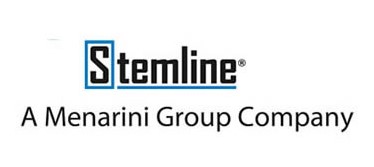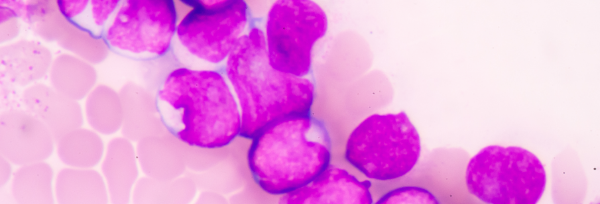Menarini Group Presents New Progression-Free Survival Data from EMERALD Clinical Study of ORSERDU® (Elacestrant) in Clinically Relevant Subgroups of Patients with ER+, HER2- Metastatic Breast Cancer (mBC) with ESR1 Mutations at SABCS 2023


This new post hoc analysis of the Phase 3 EMERALD trial evaluated elacestrant in the endocrine- sensitive population (CDK4/6 inhibitor duration of at least 12 months) with tumors harboring ESR1 mutations.
This analysis shows a clinically meaningful improvement in progression-free survival across the subgroups studied, including those patients with bone, liver and/or lung metastases, those with common concomitant mutations such as PIK3CA and TP53, as well as those with HER2-low expression.
These results demonstrate that when ESR1 mutated tumors remain endocrine sensitive, the ER pathway could be a key driver of disease.
FLORENCE, Italy and NEW YORK, December 8, 2023 – The Menarini Group (“Menarini”), a leading international pharmaceutical and diagnostics company, and Stemline Therapeutics, Inc. (“Stemline”), a wholly-owned subsidiary of the Menarini Group, focused on bringing transformational oncology treatments to cancer patients, today presented results from a new post hoc analysis of the pivotal EMERALD clinical study that demonstrated a clinically meaningful improvement in progression-free survival (PFS) across all relevant subgroups. The data show favorable PFS for single-agent ORSERDU® (elacestrant) compared to standard-of-care (SOC) for patients with ER+, HER2- advanced or metastatic breast cancer (mBC) with tumors that are endocrine sensitive and which harbor ESR1 mutations, when prior treatment duration with CDK4/6 inhibitors was at least 12 months. This data is being presented at the 2023 San Antonio Breast Cancer Symposium (SABCS), December 5-9, 2023.
EMERALD is a Phase 3 registrational trial that demonstrated statistically significant PFS with ORSERDU versus SOC endocrine monotherapy (fulvestrant, letrozole, anastrozole, exemestane). Based on these results, the FDA approved ORSERDU on January 27, 2023, for the treatment of postmenopausal women or adult men with ER+, HER2-, ESR1 mutated advanced or metastatic breast cancer with disease progression following at least one line of endocrine therapy. ESR1 mutations are present in up to 40% of ER+, HER2- advanced or mBC. They are a known driver of resistance to standard endocrine therapy, and until now, the tumors that harbor these mutations have been more difficult to treat.
Importantly, a prior post hoc subgroup analysis of the EMERALD PFS results, which was presented at SABCS 2022, demonstrated that the duration of prior CDK4/6 inhibitor treatment was positively associated with longer PFS on ORSERDU but not with SOC. For patients with ESR1 mutations who were treated with CDK4/6 inhibitors for at least 12 months prior to randomization on EMERALD, ORSERDU achieved a median PFS of 8.6 months versus 1.9 months on SOC, with a 59% reduction in the risk of progression or death (HR=0.41 95% CI: 0.26-0.63). 1
In this updated analysis, Menarini Stemline evaluated the benefit of single-agent ORSERDU in highly prevalent clinical and key biomarker subgroups, including patients who had bone, liver and/or lung metastases; those with common concomitant PIK3CA or TP53 mutations; or those with HER2-low expression.
“These updated findings further reinforce that monotherapy ORSERDU is a promising second-line treatment option for ER+, HER2- patients with metastatic breast cancer whose tumors harbor ESR1 mutations,” said Virginia Kaklamani, MD, DSc, breast medical oncologist and professor of medicine, UT Health San Antonio, MD Anderson Cancer Center. “We’ve seen consistent improvements versus standard of care in progression-free survival across many important subgroups with monotherapy elacestrant for patients whose prior treatment duration with CDK 4/6 was at least 12 months. We’ve observed these results not just for bone metastases, but also for liver and/or lung metastases, and in patients with common co-mutations such as PIK3CA and TP53, and in patients with HER2-low expression.”
ORSERDU demonstrated clinically meaningful improvement in PFS, compared to SOC endocrine monotherapy (fulvestrant, letrozole, anastrozole, exemestane), across these subgroups. ORSERDU showed significantly greater PFS when prior treatment duration with CDK4/6 inhibitors was at least 12 months, indicating that when ESR1 mutated tumors remain endocrine sensitive, the ER pathway could be a key driver of disease, regardless of the metastatic site, concomitant PIK3CA or TP53 mutations, or HER2-low expression. The full abstract can be viewed here.
“The data presented here at SABCS 2023 build on our body of knowledge on ORSERDU and its potential as a single agent therapy targeting ESR1 mutated tumors,” said Elcin Barker Ergun, CEO of the Menarini Group. “At Menarini Stemline our goal is to provide transformational treatments to help extend and improve the lives of people living with cancer. We are proud to offer a much-needed endocrine option for a multitude of appropriate metastatic breast cancer patients, and one that also has a manageable safety profile.”
Safety data were consistent with previously reported results. The most common adverse reactions with ORSERDU were musculoskeletal pain, nausea, triglycerides increased, cholesterol increased, vomiting, fatigue, dyspepsia, diarrhea, calcium decreased, back pain, creatinine increased, arthralgia, sodium decreased, constipation, headache, hot flush, abdominal pain, anemia, potassium decreased, and alanine aminotransferase increased. Important Safety Information for ORSERDU is provided below.
See here for details of the Menarini Group/Stemline Therapeutics' full range of presentations at SABCS 2023.
About the EMERALD Phase 3 Study (NCT03778931)
The EMERALD Phase 3 trial is a randomized, open label, active-controlled study evaluating elacestrant as second- or third-line monotherapy in ER+, HER2- advanced/mBC patients. The study enrolled 478 patients who had received prior treatment with one or two lines of endocrine therapy, including a CDK4/6 inhibitor. Patients in the study were randomized to receive either elacestrant or the investigator's choice of an approved hormonal agent. The primary endpoints of the study were progression-free survival (PFS) in the overall patient population and in patients with estrogen receptor 1 gene (ESR1) mutations. In the group of patients whose tumors had ESR1-mutations, elacestrant achieved a median PFS of 3.8 months vs 1.9 months on the SOC, and reduced the risk of progression or death by 45% (PFS HR=0.55, 95% CI: 0.39, 0.77) vs SOC.
About ORSERDU (elacestrant)
U.S. Indication: ORSERDU (elacestrant), 345 mg tablets, is indicated for the treatment of postmenopausal women or adult men with estrogen receptor (ER)-positive, human epidermal growth factor receptor 2 (HER2)-negative, ESR1-mutated advanced or metastatic breast cancer with disease progression following at least one line of endocrine therapy.
Full prescribing information for the U.S. can be found at www.orserdu.com.
Important Safety Information
Warning and Precautions
Dyslipidemia: Hypercholesterolemia and hypertriglyceridemia occurred in patients taking ORSERDU at an incidence of 30% and 27%, respectively. The incidence of Grade 3 and 4 hypercholesterolemia and hypertriglyceridemia were 0.9% and 2.2%, respectively. Monitor lipid profile prior to starting and periodically while taking ORSERDU. Embryo-Fetal Toxicity: Based on findings in animals and its mechanism of action, ORSERDU can cause fetal harm when administered to a pregnant woman. Advise pregnant women and females of reproductive potential of the potential risk to a fetus. Advise females of reproductive potential to use effective contraception during treatment with ORSERDU and for 1 week after the last dose. Advise male patients with female partners of reproductive potential to use effective contraception during treatment with ORSERDU and for 1 week after the final dose.
Adverse Reactions
Serious adverse reactions occurred in 12% of patients who received ORSERDU. Serious adverse reactions in >1% of patients who received ORSERDU were musculoskeletal pain (1.7%) and nausea (1.3%). Fatal adverse reactions occurred in 1.7% of patients who received ORSERDU, including cardiac arrest, septic shock, diverticulitis, and unknown cause (one patient each). The most common adverse reactions (>10%), including laboratory abnormalities, of ORSERDU were musculoskeletal pain (41%), nausea (35%), increased cholesterol (30%), increased AST (29%), increased triglycerides (27%), fatigue (26%), decreased hemoglobin (26%), vomiting (19%), increased ALT (17%), decreased sodium (16%), increased creatinine (16%), decreased appetite(15%), diarrhea(13%), headache (12%), constipation (12%), abdominal pain (11%), hot flush (11%), and dyspepsia (10%).
Drug interactions
Concomitant use with CYP3A4 Inducers and/or inhibitors: Avoid concomitant use of strong or moderate CYP3A4 inhibitors with ORSERDU. Avoid concomitant use of strong or moderate CYP3A4 inducers with ORSERDU.
Use in specific populations
Lactation: Advise lactating women to not breastfeed during treatment with ORSERDU and for 1 week after the last dose. Hepatic Impairment: Avoid use of ORSERDU in patients with severe hepatic impairment (Child-Pugh C). Reduce the dose of ORSERDU in patients with moderate hepatic impairment (Child-Pugh B). The safety and effectiveness of ORSERDU in pediatric patients have not been established.
To report SUSPECTED ADVERSE REACTIONS, contact Stemline Therapeutics, Inc. at 1-877-332-7961 or FDA at 1-800-FDA-1088 or www.fda.gov/medwatch.
About The Elacestrant Clinical Development Program
Elacestrant is also being investigated in several clinical trials in metastatic breast cancer disease, alone or in combination with other therapies. ELEVATE ( NCT05563220) is a phase 1b/2 clinical trial that will evaluate the safety and efficacy of elacestrant combined with alpelisib, everolimus, palbociclib, abemaciclib, and ribociclib. ELECTRA ( NCT05386108) is an open-label phase 1b/2, multicenter study evaluating elacestrant in combination with abemaciclib in patients with ER+, HER2- breast cancer. The phase 2 portion evaluates this treatment regimen in this patient population with brain metastases. ELCIN ( NCT05596409) is a phase 2 trial evaluating the efficacy of elacestrant in patients with estrogen receptor positive (ER+)/human epidermal growth factor receptor-2 negative (HER2-) advanced/metastatic breast cancer who received one or two prior hormonal therapies and no prior cyclin-dependent kinase targeting enzymes CDK4 and CDK6 inhibitor (CDK4/6i) in the metastatic setting. Elacestrant is also being evaluated in early breast cancer disease.
About The Menarini Group
The Menarini Group is a leading international pharmaceutical and diagnostics company, with a turnover of over $4.4 billion and over 17,000 employees. Menarini is focused on therapeutic areas with high unmet needs with products for cardiology, oncology, pneumology, gastroenterology, infectious diseases, diabetology, inflammation, and analgesia. With 18 production sites and 9 Research and Development centers, Menarini’s products are available in 140 countries worldwide. For further information, please visit www.menarini.com.
About Stemline Therapeutics Inc.
Stemline Therapeutics, Inc. (“Stemline”) a wholly-owned subsidiary of the Menarini Group, is a commercial-stage biopharmaceutical company focused on the development and commercialization of novel oncology therapeutics. Stemline commercializes ORSERDU® (elacestrant) in the U.S. and E.U., an oral endocrine therapy indicated for the treatment of postmenopausal women or adult men with estrogen receptor (ER)-positive, human epidermal growth factor receptor 2 (HER2)-negative, ESR1-mutated advanced or metastatic breast cancer with disease progression following at least one line of endocrine therapy. Stemline also commercializes ELZONRIS® (tagraxofusp-erzs), a novel targeted treatment directed to CD123 for patients with blastic plasmacytoid dendritic cell neoplasm (BPDCN), an aggressive hematologic cancer, in the United States and Europe, which is the only approved treatment for BPDCN in the U.S. and E.U. to date. Stemline also commercializes NEXPOVIO® (selinexor) in Europe, an XPO1 inhibitor for multiple myeloma. Stemline also has an extensive clinical pipeline of small molecules and biologics in various stages of development for a host of solid and hematologic cancers.
Media Contacts
The Menarini Group
Valeria Speroni Cardi
Email: pressoffice@menarini.com
Stemline Therapeutics, Inc.
Cheya Pope
Email: media@menarinistemline.com
______________________________
1 Bardia et al. EMERALD phase 3 trial of elacestrant versus standard of care endocrine therapy in patients with ER+/HER2- metastatic breast cancer: Updated results by duration of prior CDK4/6i in metastatic setting. SABCS 2022. GS3-01























